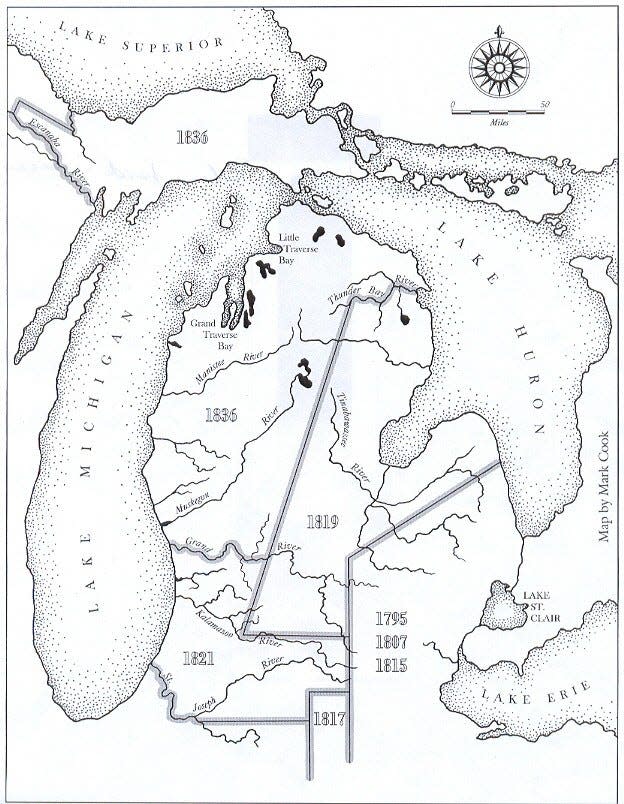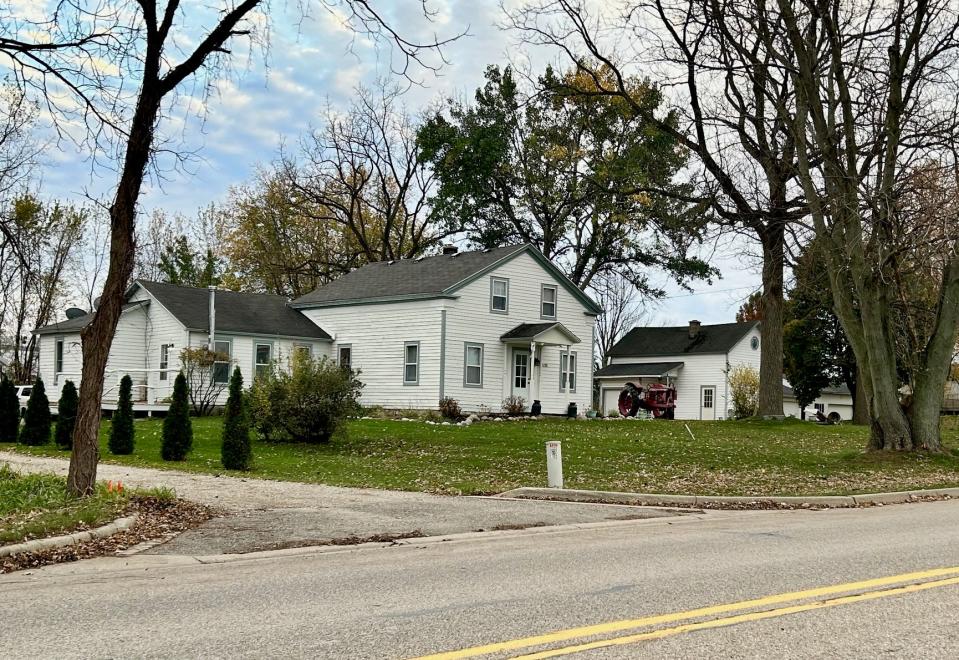Steve VanderVeen: The fur trade in West Michigan

- Oops!Something went wrong.Please try again later.
The first European entrepreneurs in West Michigan weren’t Dutch.
In the 17th Century, the Dutch and British were colonizing America’s east coast and the French were colonizing Canada. The Dutch traded weapons for furs with the Iroquois. To protect themselves against the Iroquois, the Odawa traded furs with the French.
In time, as the Europeans moved west, the British and French became chief competitors. As the French were establishing a trading post at Michilimackinac, an Englishman, John Jacob Astor, was making his way to America.
Astor was born in 1763 near Heidelberg, Germany. As a child, he worked in his father’s butcher shop. In 1779, at the age of 16, Astor moved to London to work with his brother George at his uncle’s piano factory. Then, Astor boarded a ship to Baltimore to work at his brother’s butcher shop and serve as a sales agent for his uncle’s London company.
While in transit, however, Astor met a fur trader and — once in America — he began purchasing, processing and selling furs to London.
In 1794, Astor contracted with the North West Company, headquartered in Montreal, the chief rival of the London’s Hudson’s Bay Company. But in 1808, Astor wisely decided to strike out on his own and founded the American Fur Company. Over time, aided by U.S. protectionist legislation that barred foreign competition, Astor created a fur-trading monopoly.
Astor’s Mackinac Island operation was headed by Robert Steward. (Today, Steward’s house is a museum on the Island.) There, Astor and Steward met Rix Robinson.
Robinson was born in 1789 in Massachusetts. As a boy, he studied law. In 1812, after the U.S. declared war on Britain and instituted a draft, Robinson’s father paid him $1,000 to leave town. Ironically, Robinson became a sutler, following the army and selling supplies to soldiers. That brought Robinson to Detroit, Green Bay and Mackinac, where he met Astor and Steward.
When the war ended, Robinson was broke. The government was slow to pay its soldiers. Afraid to go home for fear of prosecution, Robinson headed to Mackinac. There, Astor gave Robinson a chance by making him the American Fur Company’s representative in the St. Peter’s (Minnesota) River Region.
In Minnesota, Robinson did so well he decided to go into business for himself. In 1819, Robinson purchased axes, cloth, knives, pots, tobacco, whiskey and other items in St. Louis and exchanged them for mink, muskrat, raccoon, and especially beaver furs with indigenous peoples around present-day south Chicago and Milwaukee.
In 1821, Robinson returned to the American Fur Company, this time as a partner. He also married Pee-miss-a-quot-oquay, an Odawa woman, and took over Marguerite Laframboise’s trading post in present-day Ada, Michigan.
(Margaret Mercot Laframboise's father was a French trader and her mother an Odawa woman. A member of the Odawa killed her husband, James Laframboise, in 1806 over a whiskey dispute. After her retirement in 1821, she moved to Mackinac Island. Her daughter, educated in Montreal, married Captain Benjamin Pierce, commandant of Fort Mackinac and brother to future President Franklin Pierce.)
By 1827, Robinson was managing 20 trading posts, including at present-day Kalamazoo and Grand Haven. In 1836, he served as a representative for the Odawa at the Treaty of Washington (1836), where the U.S. Government forced the Odawa and Potawatomi to cede their West Michigan lands north of the Grand River. One of Robinson’s employees was Pierre Duvernay.
Duvernay was born in 1790 in Quebec. In 1785, Duvernay began working for North West Company at Lac Du Flambeau (northern Wisconsin) and married Josette Minedemoeyah, a Obijwa (Chippewa) woman. In 1821, he joined the American Fur Company and, in 1830, began working for Rix Robinson.

At “The Landing'' (present-day Heinz) and the Old Wing Mission in Holland, both Robinson and Duvernay traded goods with the Young Chief Joseph and Peter Wakazoo and their band of Odawa, including whiskey, much to missionary George Smith’s chagrin.
In 1834, Astor sold the American Fur Company and invested the proceeds in New York real estate. Duvernay and Robinson accompanied William Ferry to present-day Grand Haven and founded a lumber company.
Subscribe: Get unlimited access to our local coverage
When Astor died in 1848, one year after Albertus Van Raalte founded Holland, he was the richest man in America.
Information for this story comes from Wikipedia, Find a Grave, George White’s "A Comprehensive Sketch of the Life of the Hon. Rix Robinson," and Richard Vague’s "An Illustrated Business History of the United States."
— Steve VanderVeen is a resident of Holland. You may reach him at skvveen@gmail.com. His book, "The Holland Area's First Entrepreneurs," is available at Reader’s World.
This article originally appeared on The Holland Sentinel: Holland History: The fur trade in West Michigan

